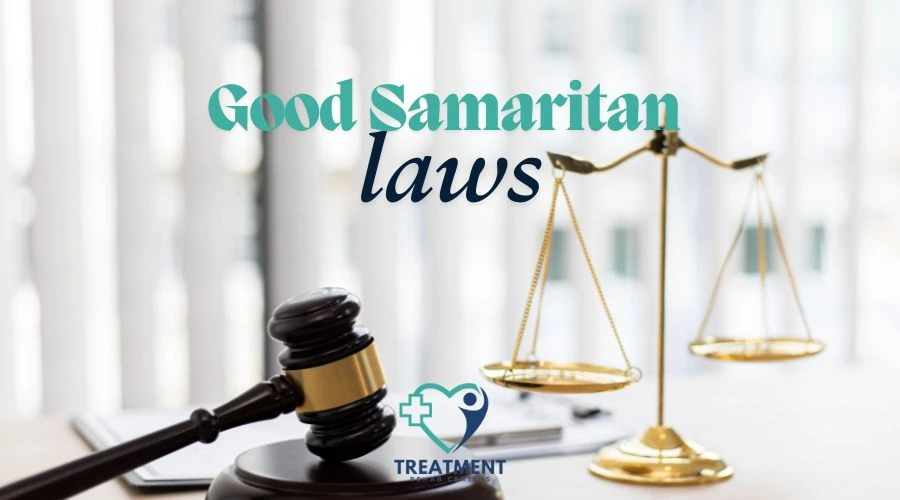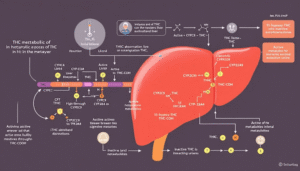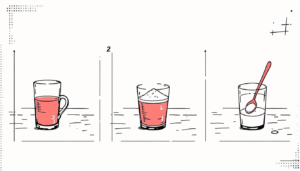When disaster strikes many people don’t step in to help others because they’re worried about the legal implications. What if something goes wrong during an emergency medical situation? Can they be sued or held liable?
That fear can paralyze good-hearted people who really want to make a difference.
That’s where Good Samaritan laws may come in. These laws are designed to allow bystanders to help in emergencies without fear of legal repercussions. But what are Good Samaritan laws and how do they work?
Our latest resource from TreatmentRehabCenters.org will get into all the details on what you need to know.
Good Samaritan Laws
Good Samaritan laws are laws that protect individuals who help in emergencies. They get their name from the biblical parable of the Good Samaritan where a man helps a stranger despite social and cultural differences.
Modern Good Samaritan laws aim to create the same spirit of compassion and responsibility in today’s world. These laws apply to everyone, no matter their medical training, so everyone can help in emergencies.
Good Samaritan Laws
Good Samaritan laws usually have:
- Voluntary: The person must act voluntarily and not for payment.
- Good Faith: Actions must be done in good faith to help not harm.
- Reasonable Care: The person helping must act within their scope of expertise and not recklessly or negligently.
- Emergency: The law usually only applies in real emergencies.
- Protection from Liability: The law protects from being sued for unintentional harm while helping.
Good Samaritan Law: Protecting Lives, Inspiring Care
What’s The Point Of Good Samaritan Laws
Timely Help
The main purpose of Good Samaritan laws is to remove the hesitation people feel when deciding whether to help in an emergency. By providing legal protection including immunity from criminal prosecution these laws allow people to act fast and decisively to provide life-saving help without fear of being sued.
Reducing Preventable Deaths and Injuries
In emergencies like cardiac arrests, drug overdoses, or accidents every second counts. A bystander’s intervention and medical assistance arriving in a more timely manner can mean the difference between life and death.
Good Samaritan laws play a big role in reducing preventable deaths by encouraging more people to step up and help without fear of being liable for unintended consequences.
Community Responsibility
Good Samaritan laws are based on the principle of shared responsibility. They promote a community where people look out for each other, a safer and more compassionate world.
Protection from Legal Consequences
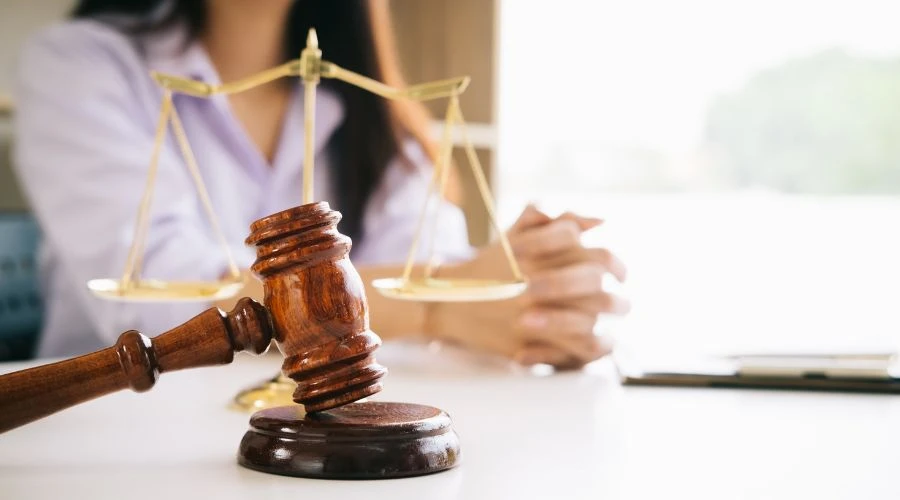
Good Samaritan laws provide protection from legal consequences for those who help those in need. These laws aim to remove the fear of being sued for trying to help so bystanders can intervene in emergency situations without fear of legal repercussions. By knowing the legal protections of Good Samaritan laws individuals can feel more comfortable and ready to help when someone needs medical help.
In the US all 50 states have some form of Good Samaritan law which protects individuals from civil liability for injuries when trying to help someone who needs medical attention. These laws don’t protect those who act recklessly or negligently but those who act in good faith and provide reasonable help.
This means as long as you help with the intention to help and within your scope of expertise, you are generally protected from legal consequences. This legal principle allows more people to step up and help in emergencies knowing the law has their back.
What’s Covered By Good Samaritan Laws
Good Samaritan laws usually cover a lot of emergency situations. Here are some of the most common:
Medical Emergencies
If someone sees someone choking, having a heart attack or fainting Good Samaritan laws protect bystanders who give first aid or do CPR.
Drug Overdoses
In recent years many states have expanded Good Samaritan laws to include drug overdose situations. Known as “911 Good Samaritan laws” these provisions protect individuals from being prosecuted for drug possession if they call 911 during an overdose.
Vehicle Accidents
Good Samaritan laws often cover bystanders who help in car accident situations like pulling someone from a burning vehicle or stabilizing an injured person until help arrives.
Natural Disasters
During hurricanes, earthquakes or other disasters those who volunteer to provide shelter, food or first aid are often protected under Good Samaritan laws.
Good Samaritan vs Duty to Rescue
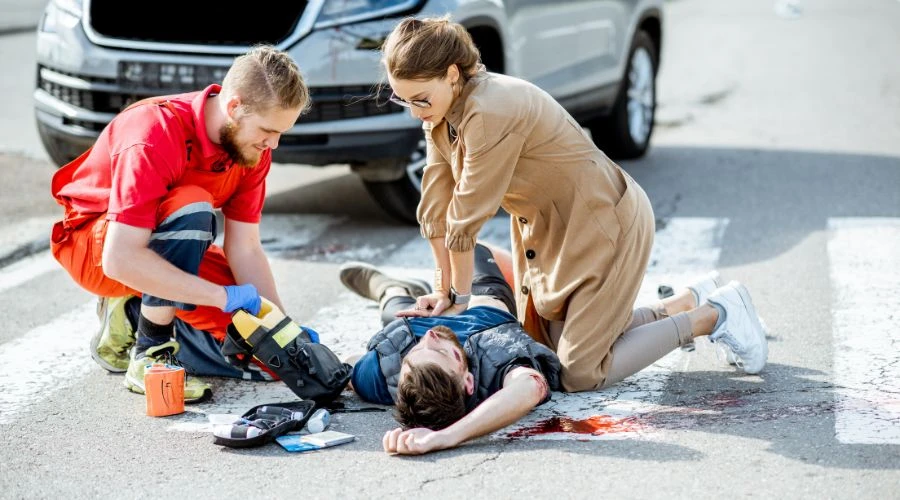
Good Samaritan laws are often confused with duty to rescue laws but they serve different purposes. Duty to rescue laws require individuals to help in certain situations whereas Good Samaritan laws provide a defense against torts arising from attempted rescues. In the US there is no federal duty to rescue law but some states have laws that require individuals to provide reasonable assistance in emergency situations.
Good Samaritan laws don’t impose a duty to rescue but rather provide legal protection to those who choose to help. These laws vary from state to state and some may provide more protection than others.
Knowing the difference between Good Samaritan laws and duty to rescue laws is important for those who want to help medically without fear of legal consequences. By knowing the scope of these laws you can make informed decisions when and how to help so your actions are both legally protected and beneficial to those in need.
Limitations and Exclusions
Good Samaritan laws are broad but not unlimited. Here are the limitations:
Exclusion of Gross Negligence
Good Samaritan laws don’t protect individuals who act recklessly or with gross negligence. They can still be found liable. For example, if someone does a medical procedure they are not qualified to do and causes harm they may still be liable. Parental rights can also complicate situations involving minors as consent and refusal of treatment must be considered.
Professional Duty to Act
These laws don’t apply to professionals like doctors or paramedics acting in their professional capacity. For example, a doctor who gives aid in their personal time may be protected but not if they are on duty.
Pre-existing Relationships
In some cases if there is a pre-existing duty to act – like a teacher’s duty to students – Good Samaritan protections may not apply.
Good Samaritan Law: Encouraging Acts of Courage and Care
Good Samaritan Laws by Region
Good Samaritan laws vary greatly between countries and even between states or provinces. In the US for example each state has its own version of the law and some provide more protection than others.
United States
In the US Good Samaritan laws exist in all 50 states but the details vary. Some states provide immunity only for medical emergencies while others include overdose situations. States like California and New York have additional provisions for AED use.
International
Good Samaritan laws are common globally but the scope varies. For example:
- Canada: Similar to the US laws, Canadian laws provide similar protections often during medical emergencies.
- United Kingdom: The UK doesn’t have a Good Samaritan law but the legal system generally supports individuals acting in good faith during emergencies.
- Australia: Australian laws protect individuals who provide first aid as long as they act reasonably and within their skill level.
Real-Life Examples of Good Samaritan Laws
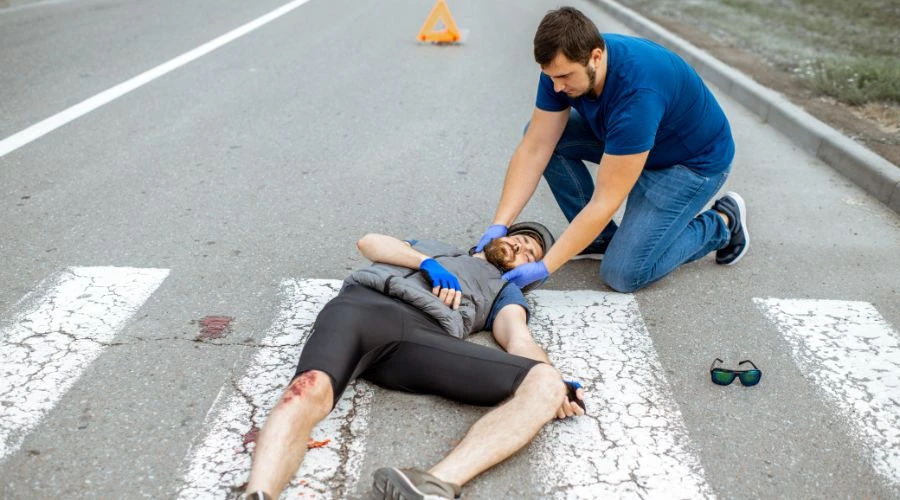
Good Samaritan laws apply in real-life situations. For example, if someone witnesses a car accident and helps the injured they may be protected from legal repercussions under Good Samaritan laws. If a bystander does CPR on someone having a cardiac arrest they may be protected under these laws.
Plus Good Samaritan laws can apply to medical personnel who provide aid outside of their professional duties. For example, if a doctor or nurse gives aid to someone in need while off duty they may be protected under Good Samaritan laws. This protection applies to many scenarios so both laypersons and professionals can act without hesitation.
In general Good Samaritan laws are key to getting people to help in emergency situations. By understanding the protection offered by these laws individuals can feel more comfortable and ready to help when someone needs medical attention.
Whether you’re a trained medical professional or a concerned bystander these laws will protect your efforts to help others so you can help create a more helpful and compassionate world.
Debunking the Myths
“I’ll Get Sued Anyway”
A common worry is that helping will lead to lawsuits despite Good Samaritan laws. While anyone can file a lawsuit it’s highly unlikely to succeed if you acted in good faith, even if there is an unintentional injury.
“Professionals Aren’t Protected”
Professionals have a higher duty of care but are often protected under Good Samaritan laws when acting outside their professional capacity, like stopping to help at an accident scene while off duty.
“I’ll Be Forced to Help”
Good Samaritan laws don’t impose a legal duty to act. They just protect those who do act from legal repercussions.
Up To 100% of Rehab Costs Covered By Insurance
Why Good Samaritan Laws Matter
Good Samaritan laws are more than just legal protection; they’re a societal commitment to kindness and accountability. In a world where fear of liability can stop people from doing the right thing these laws give us reassurance that helping others isn’t just encouraged it’s protected.
By understanding and living the principles of Good Samaritan laws we can create communities where people feel empowered to act with compassion and courage in times of need. So the next time you see someone in trouble remember: you can save a life and Good Samaritan laws will have your back.
And if you or someone you are about is struggling with substances, and has experienced accidental overdose, please call us for proven treatment and support options, today.
All calls are strictly confidential, and we are here to help.

